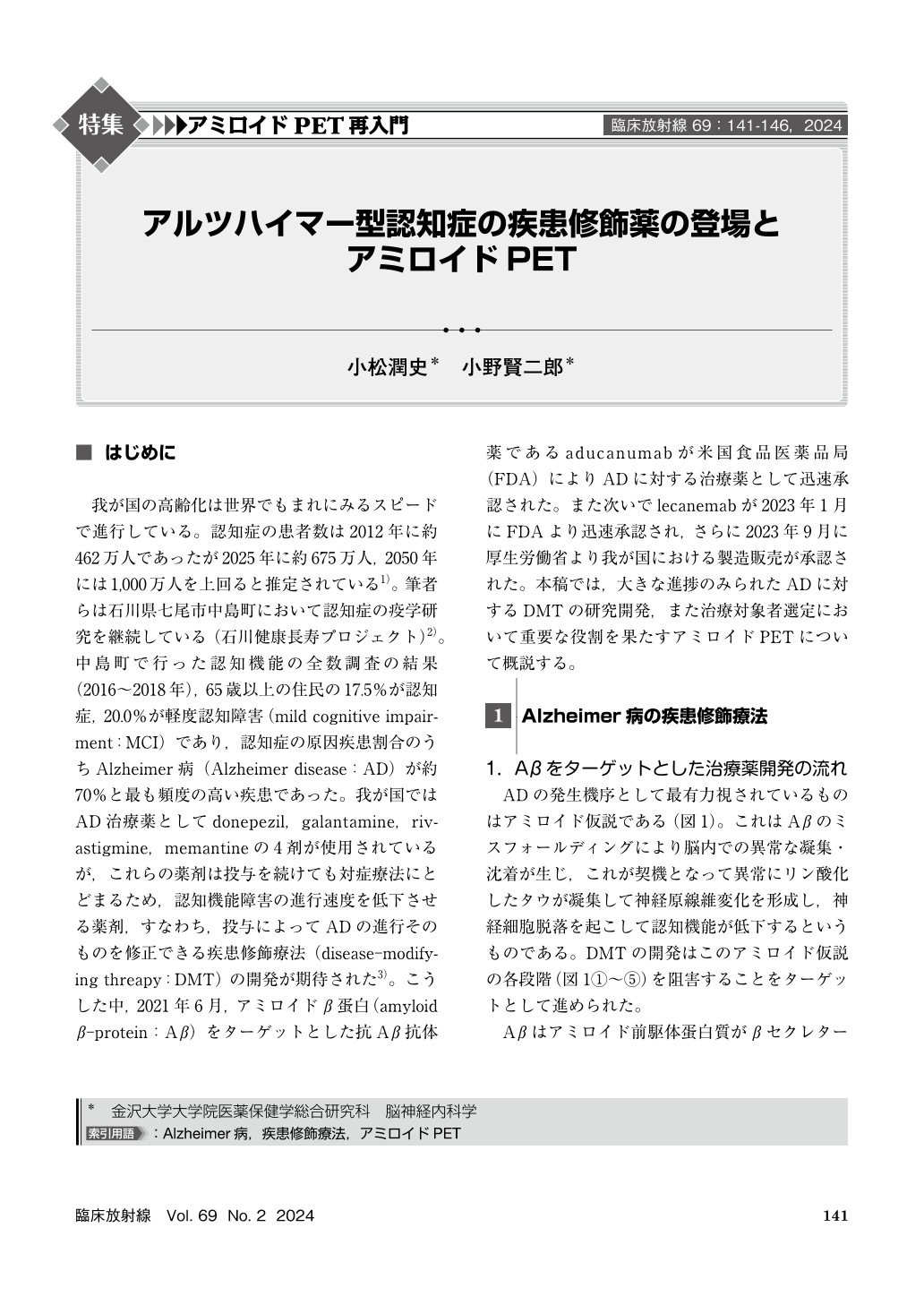Japanese
English
- 有料閲覧
- Abstract 文献概要
- 1ページ目 Look Inside
- 参考文献 Reference
我が国の高齢化は世界でもまれにみるスピードで進行している。認知症の患者数は2012年に約462万人であったが2025年に約675万人,2050年には1,000万人を上回ると推定されている1)。筆者らは石川県七尾市中島町において認知症の疫学研究を継続している(石川健康長寿プロジェクト)2)。中島町で行った認知機能の全数調査の結果(2016~2018年),65歳以上の住民の17.5%が認知症,20.0%が軽度認知障害(mild cognitive impairment:MCI)であり,認知症の原因疾患割合のうちAlzheimer病(Alzheimer disease:AD)が約70%と最も頻度の高い疾患であった。我が国ではAD治療薬としてdonepezil,galantamine,rivastigmine,memantineの4剤が使用されているが,これらの薬剤は投与を続けても対症療法にとどまるため,認知機能障害の進行速度を低下させる薬剤,すなわち,投与によってADの進行そのものを修正できる疾患修飾療法(disease-modifying threapy:DMT)の開発が期待された3)。こうした中,2021年6月,アミロイドβ蛋白(amyloid β-protein:Aβ)をターゲットとした抗Aβ抗体薬であるaducanumabが米国食品医薬品局(FDA)によりADに対する治療薬として迅速承認された。また次いでlecanemabが2023年1月にFDAより迅速承認され,さらに2023年9月に厚生労働省より我が国における製造販売が承認された。本稿では,大きな進捗のみられたADに対するDMTの研究開発,また治療対象者選定において重要な役割を果たすアミロイドPETについて概説する。
Alzheimer’s disease(AD)is one of the most prevalent neurodegenerative diseases that affect millions of people worldwide, with both prevalence and incidence increasing with age. Research on disease-modifying therapies(DMTs)for AD has resulted in a series of failures over the past 20 years. However, in the last three years, anti-amyloid immunotherapies:aducanumab, donanemab, and lecanemab, have shown a significant clearance of cerebral β-amyloid deposits and promising clinical results. This review highlights the latest advances in disease-modifying drugs for AD. Furthermore, amyloid PET that would play important role in assisting on the DMTs for AD will also be approached.

Copyright © 2024, KANEHARA SHUPPAN Co.LTD. All rights reserved.


